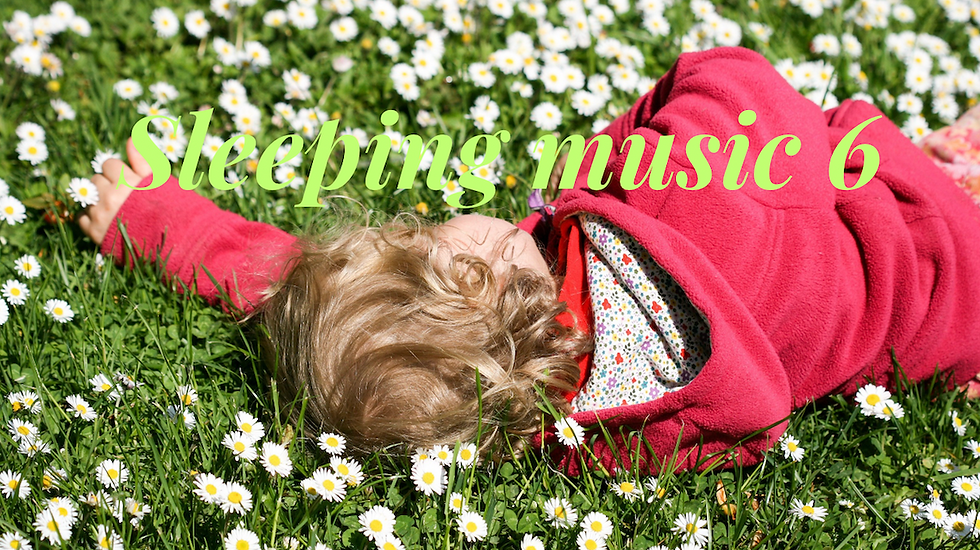Music to Sleep Relax: The Benefits of Sound Therapy for a Better Night's Rest
- Music Purpose
- Mar 19, 2023
- 3 min read
If you struggle with getting a good night's sleep, you're not alone. According to the American Sleep Association, 50-70 million adults in the United States have a sleep disorder. But did you know that listening to music can help you fall asleep faster and improve the quality of your sleep? In this article, we'll explore the benefits of sound therapy and the best music to sleep relax.
The Science of Sound Therapy
Sound therapy, also known as music therapy or sound healing, is a holistic approach that uses sounds to improve physical and emotional well-being. It's based on the idea that sound waves can affect our brain waves, which in turn can influence our mental and physical states.
Studies have shown that sound therapy can help reduce anxiety, stress, and pain, as well as improve sleep quality and immune function. This is because sound waves can stimulate the production of endorphins, the body's natural painkillers, and promote relaxation by slowing down the heart rate and breathing.

The Best Music to Sleep Relax
Not all music is created equal when it comes to sleep relaxation. Here are some of the best types of music to help you drift off:
Classical Music
Classical music, especially slow and soft pieces, can help calm the mind and reduce stress. Some of the most popular classical pieces for sleep relaxation include "Moonlight Sonata" by Beethoven, "Clair de Lune" by Debussy, and "Gymnopédie No. 1" by Satie.
Ambient Music
Ambient music is a genre that focuses on creating a relaxing atmosphere with gentle sounds and minimal melodies. It's perfect for creating a peaceful and calming environment for sleep. Some popular ambient artists include Brian Eno, Sigur Rós, and William Basinski.
Nature Sounds
Nature sounds, such as rain, waves, and birdsong, can create a soothing and natural atmosphere that can help you relax and fall asleep faster. There are many nature sound apps and websites that offer a variety of sounds to choose from.
Tips for Using Music to Sleep Relax
Here are some tips to get the most out of your sound therapy for sleep relaxation:
Use Headphones
Using headphones can help block out external noise and create a more immersive experience. It can also help prevent disturbing others if you're sharing a sleeping space.
Set a Timer
Setting a timer for your music can help you avoid disruptions in the middle of the night. Aim for a duration of at least 30 minutes to allow enough time for relaxation and sleep.
Create a Sleep Routine
Incorporate music into your sleep routine by listening to the same playlist or type of music every night. This can help signal to your brain that it's time to wind down and prepare for sleep.
Conclusion
In conclusion, sound therapy can be a powerful tool for improving sleep quality and overall well-being. By using music to sleep relax, you can reduce stress and anxiety, improve mood, and promote better sleep. So the next time you're struggling to fall asleep, consider trying some of the best types of music for sleep relaxation and see the difference it can make.
FAQs
1.Is it okay to listen to music all night for sleep relaxation?
While it's okay to use music to fall asleep, it's recommended to set a timer and turn it off after 30-60 minutes to avoid disrupting your sleep cycle.
2. Can I use any type of music for sleep relaxation?
While any music that you find relaxing can help, some types of music, such as classical music, ambient music, and nature sounds, are particularly effective for sleep relaxation.
3. How loud should I listen to music for sleep relaxation?
It's important to listen to music at a comfortable volume that doesn't cause discomfort or disturbance. Aim for a volume that's slightly lower than the average conversation level.
4. Can sound therapy be used for other purposes besides sleep relaxation?
Yes, sound therapy can be used for a variety of purposes, including stress relief, pain management, and improving cognitive function.
5. Are there any risks or side effects of using music for sleep relaxation?
While sound therapy is generally safe and has minimal side effects, it's important to be cautious with the volume and type of music you use. If you experience any discomfort or negative effects, it's best to stop using it and consult with a healthcare professional.
In summary, using music for sleep relaxation is a safe and effective way to improve the quality of your sleep and promote overall well-being. By incorporating sound therapy into your sleep routine, you can reduce stress and anxiety, improve mood, and wake up feeling refreshed and energized. So why not give it a try and see how it works for you?
Comments